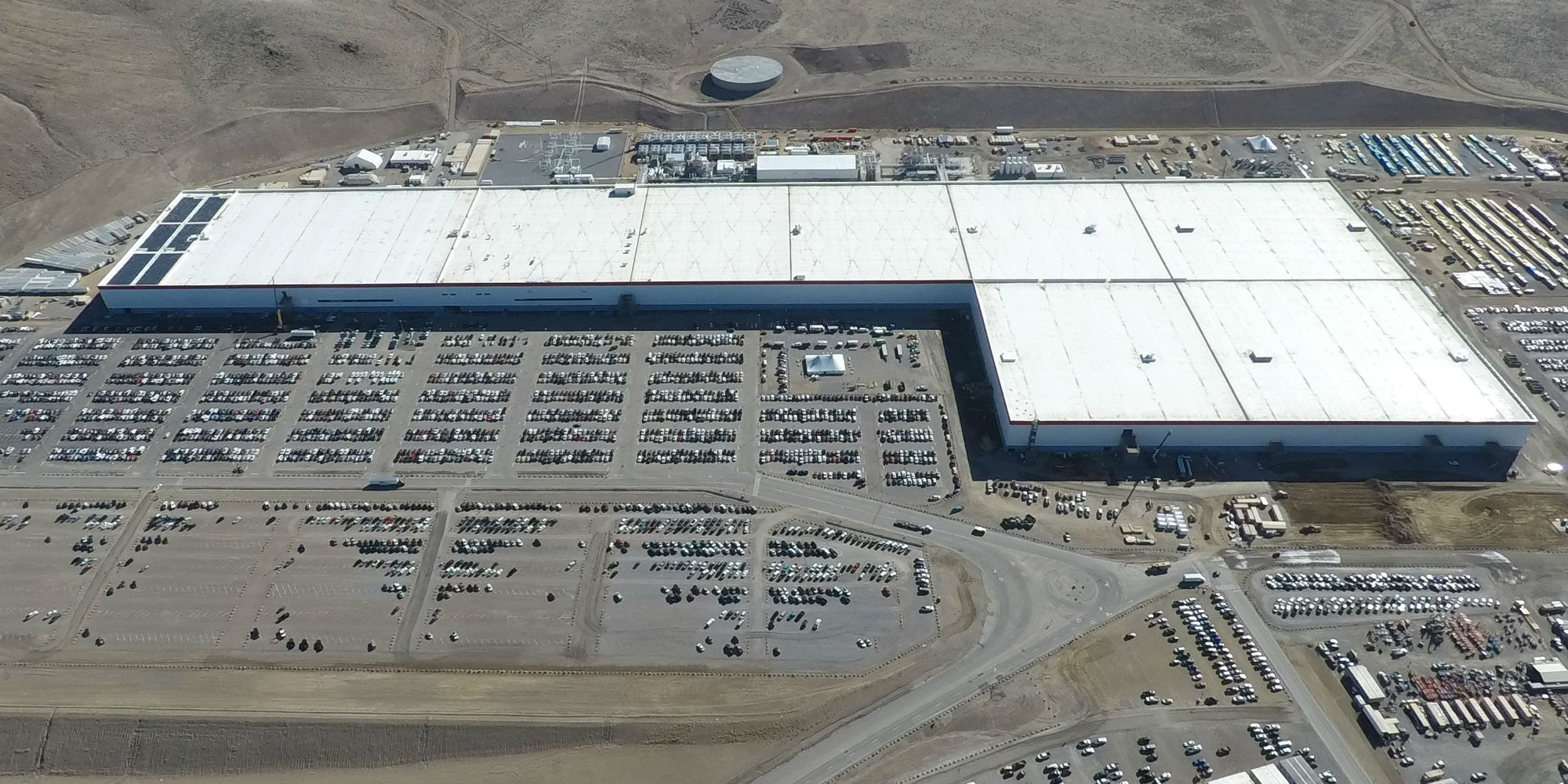
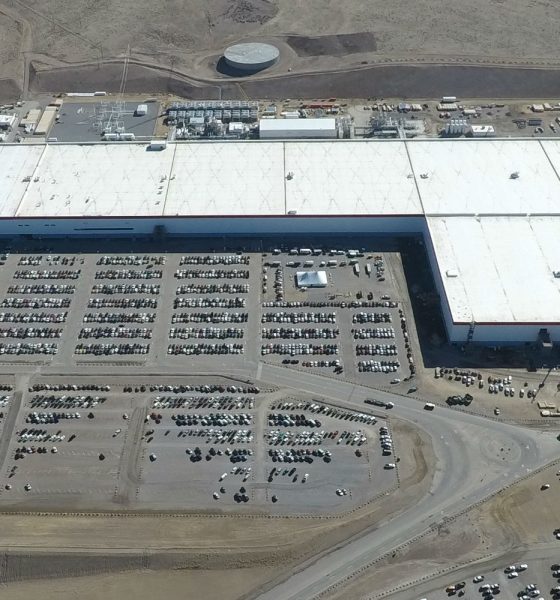
Energy
Tesla battery partner Panasonic debunks rumors about alleged Gigafactory 1 conflicts
Panasonic Corporation President Kazuhiro Tsuga effectively debunked speculations alleging that the Japanese company’s relationship with American electric car maker Tesla is on the rocks. During a recent Q&A session, Tsuga explained the dynamic between Tesla and Panasonic, as well as his insights about the idea of the electric car maker utilizing another battery supplier for Gigafactory 3.
The relationship between Tesla and Panasonic was thrown into question following a report from the Nikkei Asian Review last month, which alleged that the Japanese company was freezing its investments in Gigafactory 1. Tesla responded to the report, stating that there is far more output to be gained by improving the existing production lines in the Nevada-based factory. Elon Musk took to Twitter as well, stating that Panasonic’s lines at Gigafactory 1 are only operating at ~24 GWh per year despite having a theoretical capacity of 35 GWh.
Musk’s tweets were promptly interpreted as a “public battle” with Panasonic. Craig Irwin of Roth Capital Partners noted that “Tesla and Panasonic need couples counseling ASAP,” adding that “this is looking like a much more acrimonious relationship.” Tsuga, for his part, mentioned that Tesla and Panasonic maintain a “very good relationship between ourselves” during the Q&A session. Explaining further, the Panasonic President pointed out that the two companies have always been candid with each other, especially when it comes to investments in facilities such as Gigafactory 1.
“(In) the earlier session with the media, there was a question as to (whether) we have (a) bad relationship, (or if) we’re not getting along with Tesla. Well, we are making sure that we have a partnership relationship, not a supplier relationship. And since we are partners, we are very frank and candid and honest to each other. So on this battery business, as for the investment facilities — for the facilities that we have invested, can we maintain the battery operation with the orders coming in? From Tesla’s point of view, with the batteries being supplied, they can manufacture their vehicles on a full capacity basis.
“Unless that is established, this would not be a win-win relationship. In the past, what hurt us (was) that we were told that ‘This is the capacity you’ll need,’ but we couldn’t sell that much batteries. That’s the worst case. And that sense, Tesla is purchasing everything that we manufacture. And they have not just the electric vehicles but they do have the storage batteries as well, and they are asking for the capacity increase all the time. And therefore, we have capacity but not being produced. That situation is not envisioned for Gigafactory for now. So I think we have a very good relationship between ourselves,” Tsuga said.
Other concerns that were brought forward on the heels of the Nikkei report were Panasonic’s speculated issues about Tesla’s potential local battery partner in Gigafactory 3. Tesla is speculated to utilize a local battery supplier for the Shanghai-based electric car production facility, a strategy that analysts such as Cairn Energy Research Advisors managing director Sam Jaffe believed would irk Panasonic. “Tesla is starting to flirt with other battery makers in China, and Panasonic doesn’t like that,” Jaffe said in a statement to the Los Angeles Times.
Panasonic President Tsuga expressed a completely different sentiment about the topic, noting that it makes sense for Tesla to adopt a multiple supplier model for Gigafactory 3. “Now because of what happens in China, Tesla is considering a multiple supplier structure, which makes sense for Tesla maybe given the very special nature of doing business in China, and maybe they need to have that structure so as to be approved by China authority. So on the part of Tesla, they might prefer — they might start considering getting multiple suppliers, but that doesn’t mean that our relationship is being hurt and is being unstable, no. We continue to have very solid, very strong relationship with Tesla,” Tsuga said.
Panasonic and Tesla have been in a close working relationship for years. The Japanese company currently produces the battery cells for Tesla’s vehicles, from the 18650 cells used in the Model S and Model X to the 2170 cells utilized in the Model 3. Considering the recent statements of the Panasonic President, as well as Tesla’s ramp of its existing and upcoming products, it appears that the two companies’ partnership will likely remain strong for some time to come.

Energy
Tesla meets Giga New York’s Buffalo job target amid political pressures
Giga New York reported more than 3,460 statewide jobs at the end of 2025, meeting the benchmark tied to its dollar-a-year lease.
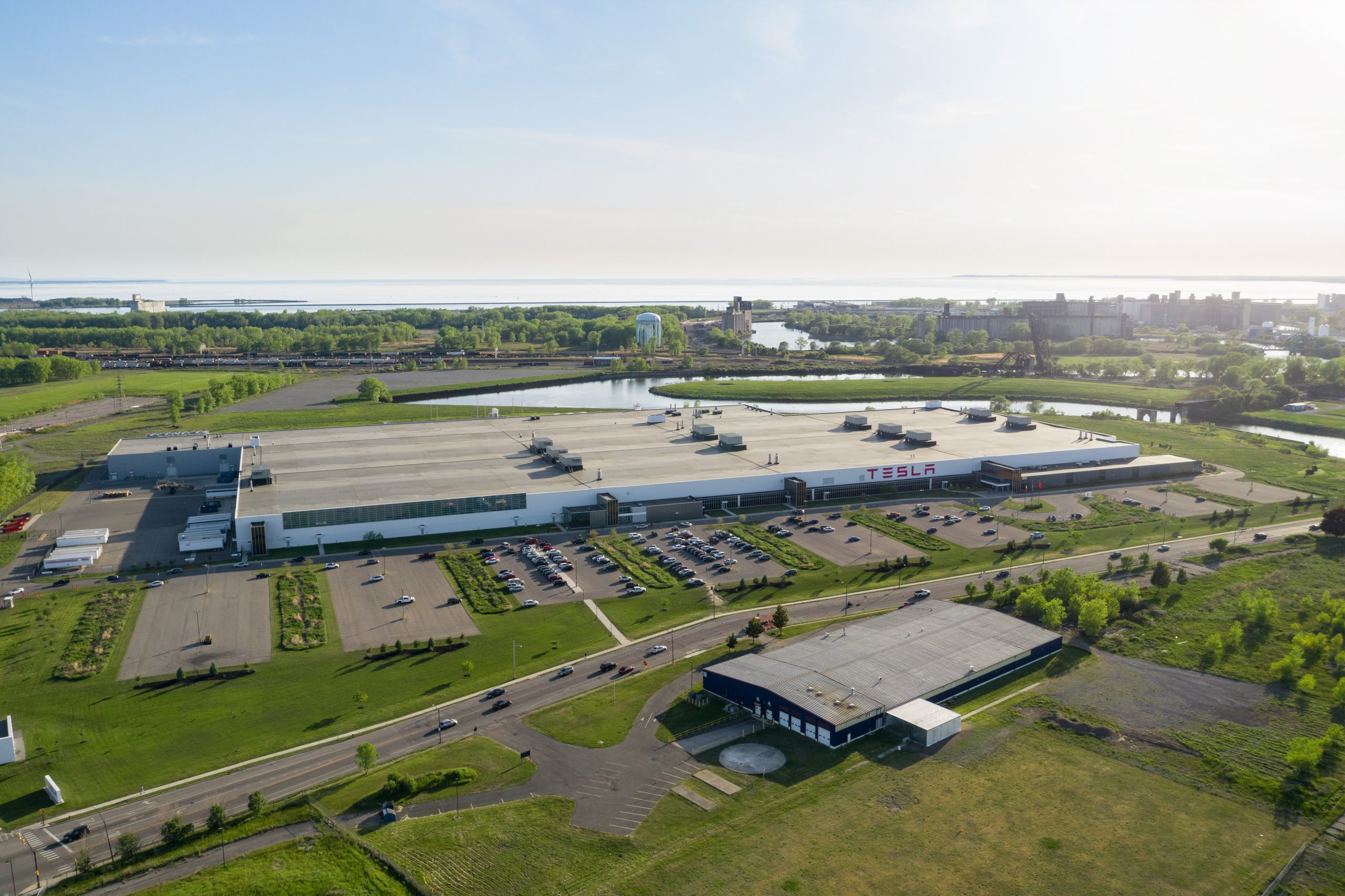
Tesla has surpassed its job commitments at Giga New York in Buffalo, easing pressure from lawmakers who threatened the company with fines, subsidy clawbacks, and dealership license revocations last year.
The company reported more than 3,460 statewide jobs at the end of 2025, meeting the benchmark tied to its dollar-a-year lease at the state-built facility.
As per an employment report reviewed by local media, Tesla employed 2,399 full-time workers at Gigafactory New York and 1,060 additional employees across the state at the end of 2025. Part-time roles pushed the total headcount of Tesla’s New York staff above the 3,460-job target.
The gains stemmed in part from a new Long Island service center, a Buffalo warehouse, and additional showrooms in White Plains and Staten Island. Tesla also said it has invested $350 million in supercomputing infrastructure at the site and has begun manufacturing solar panels.
Empire State Development CEO Hope Knight said the agency was “very happy” with Giga New York’s progress, as noted in a WXXI report. The current lease runs through 2029, and negotiations over updated terms have included potential adjustments to job requirements and future rent payments.
Some lawmakers remain skeptical, however. Assemblymember Pat Burke questioned whether the reported job figures have been fully verified. State Sen. Patricia Fahy has also continued to sponsor legislation that would revoke Tesla’s company-owned dealership licenses in New York. John Kaehny of Reinvent Albany has argued that the project has not delivered the manufacturing impact originally promised as well.
Knight, for her part, maintained that Empire State Development has been making the best of a difficult situation.
“(Empire State Development) has tried to make the best of a very difficult situation. There hasn’t been another use that has come forward that would replace this one, and so to the extent that we’re in this place, the fact that 2,000 families at (Giga New York) are being supported through the activity of this employer. It’s the best that we can have happen,” the CEO noted.
Energy
Tesla launches Cybertruck vehicle-to-grid program in Texas
The initiative was announced by the official Tesla Energy account on social media platform X.
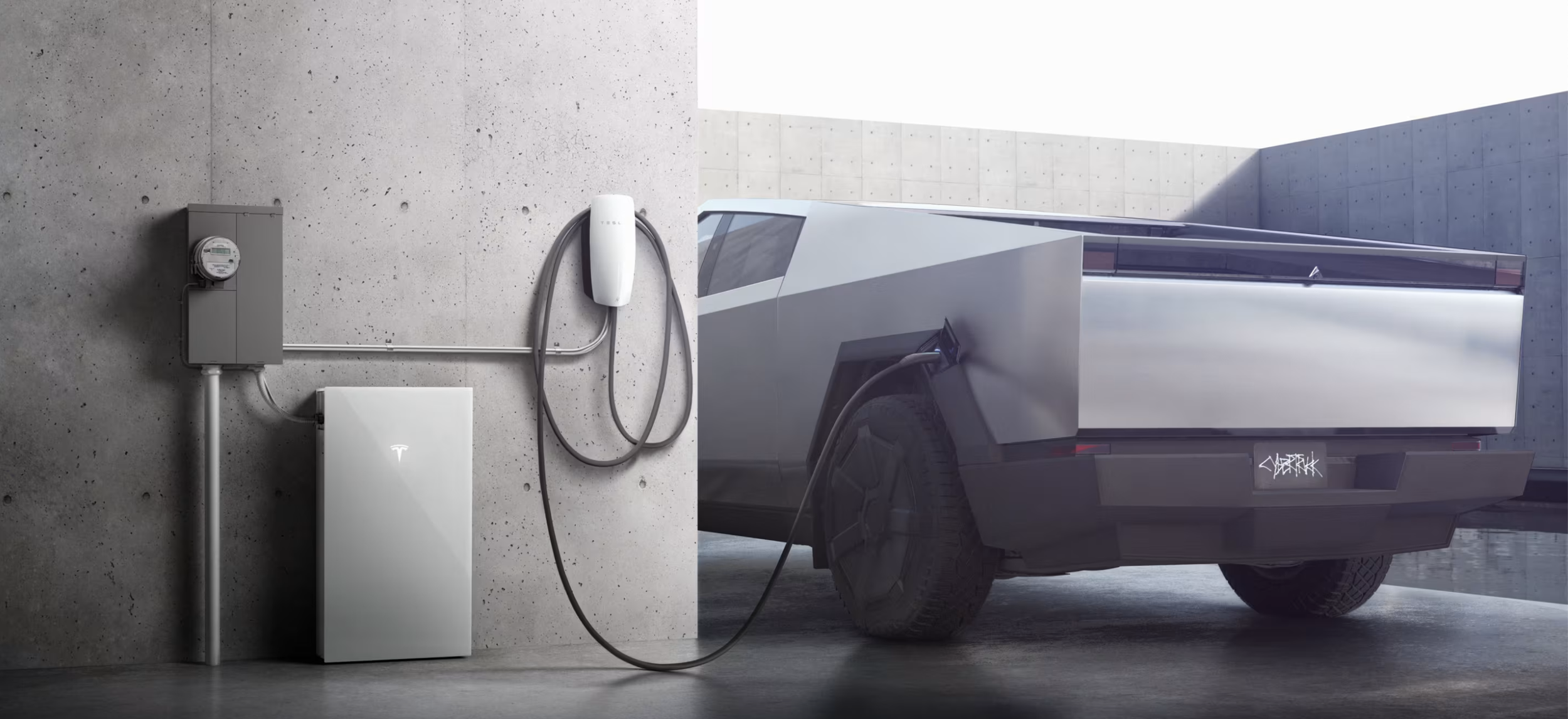
Tesla has launched a vehicle-to-grid (V2G) program in Texas, allowing eligible Cybertruck owners to send energy back to the grid during high-demand events and receive compensation on their utility bills.
The initiative, dubbed Powershare Grid Support, was announced by the official Tesla Energy account on social media platform X.
Texas’ Cybertruck V2G program
In its post on X, Tesla Energy confirmed that vehicle-to-grid functionality is “coming soon,” starting with select Texas markets. Under the new Powershare Grid Support program, owners of the Cybertruck equipped with Powershare home backup hardware can opt in through the Tesla app and participate in short-notice grid stress events.
During these events, the Cybertruck automatically discharges excess energy back to the grid, supporting local utilities such as CenterPoint Energy and Oncor. In return, participants receive compensation in the form of bill credits. Tesla noted that the program is currently invitation-only as part of an early adopter rollout.
The launch builds on the Cybertruck’s existing Powershare capability, which allows the vehicle to provide up to 11.5 kW of power for home backup. Tesla added that the program is expected to expand to California next, with eligibility tied to utilities such as PG&E, SCE, and SDG&E.
Powershare Grid Support
To participate in Texas, Cybertruck owners must live in areas served by CenterPoint Energy or Oncor, have Powershare equipment installed, enroll in the Tesla Electric Drive plan, and opt in through the Tesla app. Once enrolled, vehicles would be able to contribute power during high-demand events, helping stabilize the grid.
Tesla noted that events may occur with little notice, so participants are encouraged to keep their Cybertrucks plugged in when at home and to manage their discharge limits based on personal needs. Compensation varies depending on the electricity plan, similar to how Powerwall owners in some regions have earned substantial credits by participating in Virtual Power Plant (VPP) programs.
Cybertruck
Tesla updates Cybertruck owners about key Powershare feature
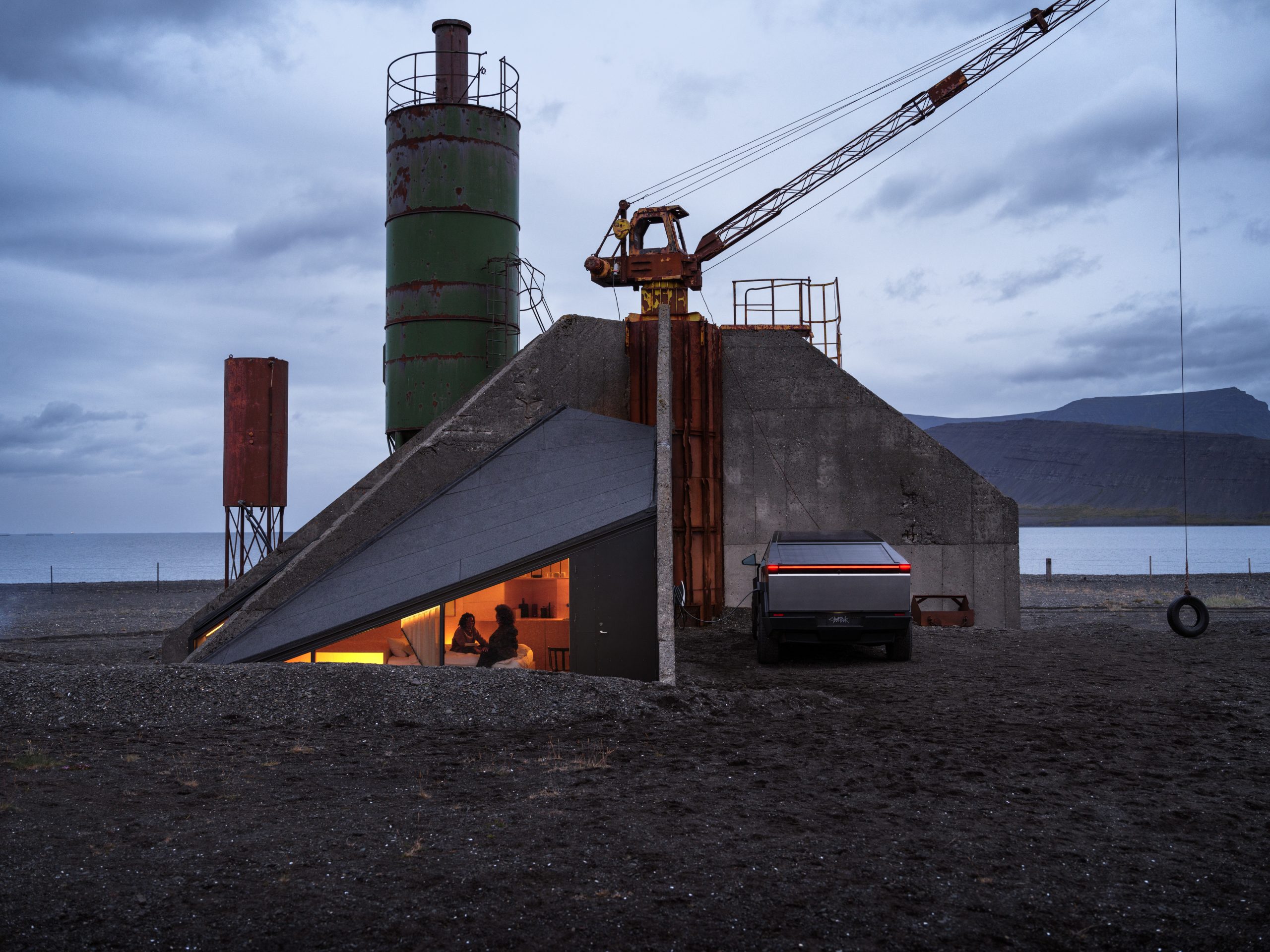
Tesla is updating Cybertruck owners on its timeline of a massive feature that has yet to ship: Powershare with Powerwall.
Powershare is a bidirectional charging feature exclusive to Cybertruck, which allows the vehicle’s battery to act as a portable power source for homes, appliances, tools, other EVs, and more. It was announced in late 2023 as part of Tesla’s push into vehicle-to-everything energy sharing, and acting as a giant portable charger is the main advantage, as it can provide backup power during outages.
Cybertruck’s Powershare system supports both vehicle-to-load (V2L) and vehicle-to-home (V2H), making it flexible and well-rounded for a variety of applications.
However, even though the feature was promised with Cybertruck, it has yet to be shipped to vehicles. Tesla communicated with owners through email recently regarding Powershare with Powerwall, which essentially has the pickup act as an extended battery.
Powerwall discharge would be prioritized before tapping into the truck’s larger pack.
However, Tesla is still working on getting the feature out to owners, an email said:
“We’re writing to let you know that the Powershare with Powerwall feature is still in development and is now scheduled for release in mid-2026.
This new release date gives us additional time to design and test this feature, ensuring its ability to communicate and optimize energy sharing between your vehicle and many configurations and generations of Powerwall. We are also using this time to develop additional Powershare features that will help us continue to accelerate the world’s transition to sustainable energy.”
Owners have expressed some real disappointment in Tesla’s continuous delays in releasing the feature, as it was expected to be released by late 2024, but now has been pushed back several times to mid-2026, according to the email.
Foundation Series Cybertruck buyers paid extra, expecting the feature to be rolled out with their vehicle upon pickup.
Cybertruck’s Lead Engineer, Wes Morrill, even commented on the holdup:
As a Cybertruck owner who also has Powerwall, I empathize with the disappointed comments.
To their credit, the team has delivered powershare functionality to Cybertruck customers who otherwise have no backup with development of the powershare gateway. As well as those with solar…
— Wes (@wmorrill3) December 12, 2025
He said that “it turned out to be much harder than anticipated to make powershare work seamlessly with existing Powerwalls through existing wall connectors. Two grid-forming devices need to negotiate who will form and who will follow, depending on the state of charge of each, and they need to do this without a network and through multiple generations of hardware, and test and validate this process through rigorous certifications to ensure grid safety.”
It’s nice to see the transparency, but it is justified for some Cybertruck owners to feel like they’ve been bait-and-switched.








